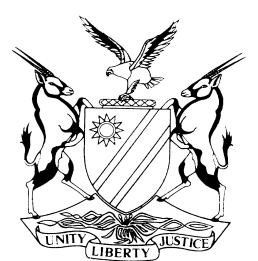
CASE NO.: CR 41/2012
IN THE HIGH COURT OF NAMIBIA
HELD IN WINDHOEK
In the matter between:
THE STATE
and
THOMAS BLOM
(HIGH COURT REVIEW CASE NO.: 101/2010)
(MAGISTRATE’S SERIAL NO.: 167/2009)
CORAM: PARKER, J et SHIVUTE, J
Delivered on: 2012 June 05
REVIEW JUDGMENT
SHIVUTE, J: [1] The accused appeared in the Mariental district magistrates’ court on a charge of ‘becoming intoxicated upon any road, street, avenue, park through fare or public place’. He was convicted of becoming intoxicated upon a public place and sentenced to twelve months’ imprisonment. The court invoked section 112 (1) (b) Act 52 of 1977. When the trial magistrate questioned the accused in terms of section 112 1 (b) of the Act, he asked the accused whether he knew that it was wrong to become intoxicated in a public place and the accused responded that he did not know. He never knew.
[2] I directed a query to the magistrate how the court satisfied itself that the accused admitted all the elements of the offence, if the accused responded that he did not know it was wrong to become intoxicated at a public place.
[3] The magistrate replied in the following terms:
“After perusing the record and a research on the subject, and more specifically, studying the case of State v De Blom (1977 (3) SA.513 (A)), the Magistrate concedes that the ignorance of the legal provision pleaded by the accused should have been upheld and section 113 entered for the state to prove that the accused was not ignorant as such”.
[4] The learned magistrate rightly conceded that he ought to have entered a plea of not guilty in terms of section 113 of the Criminal Procedure Act, Act 51 of 1977. Section 113 of the Act, provides for the correction of plea of guilty and states as follows:
“If the court at any stage of the proceedings under section 112 and before sentence is passed is in doubt whether the accused is in law guilty of the offence to which he has pleaded guilty or is satisfied that the accused does not admit an allegation in the charge or that the accused has incorrectly admitted any such allegation or that the accused has a valid defence to the charge, the court shall record a plea of not guilty and require the prosecutor to proceed with the prosecution: Provided that any allegation, other than an allegation referred to above, admitted by the accused up to the stage at which the court records a plea of not guilty, shall stand as proof in any court of such allegation”.
[5] In the subject matter the accused raised a valid defence to the charge which required the court to apply section 113. However, the court overlooked the provision and proceeded to question the accused and convicted him.
[6] The court erred by not entering a plea of not guilty for the prosecution to proceed with the prosecution to prove the charge against the accused.
[7] For the foregoing reasons, the charge was not proved against the accused. It follows that the conviction and sentence cannot be allowed to stand.
[8] In the result the following order is made:
(1) The conviction and sentence of (12) twelve months’ imprisonment is set aside.
(2) In terms of section 312 (1) of the Criminal Procedure Act, the matter is remitted to the magistrate to apply section 113 of the Criminal Procedure Act.
(3) When sentencing the accused the court is directed to take into account the term of imprisonment served by the accused.
__________________
SHIVUTE, J
I agree.
___________________
PARKER, J